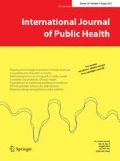Summary.
Objectives: The uptake of mammography for breast cancer screening is considerably lower among women with intellectual disability than for women in the general population. The purpose of the present study was to investigate carer perceptions of barriers and enablers to mammography use by these women.
Methods: To determine the reasons why women with intellectual disability are not utilising screening services, a series of focus groups were held with social trainers working in accommodation provided for people with intellectual disability.
Results: The major themes identified included the need for a medical referral or invitation from the mammography service to motivate people to attend; the belief that many women with intellectual disability would not understand the procedure or why it needs to be done and therefore would experience fear and anxiety to a greater extent than women in the general population; and that physical disabilities comorbid in many of the women would limit their ability to be adequately accommodated by the machines used to take a mammogram.
Conclusions: The social trainers agreed that many of the barriers to screening would be difficult to overcome and supported alternative strategies to mammography, such as clinical breast examination.
Zusammenfassung.
Die Nutzung von Brustkrebsvorsorgeuntersuchungen von Frauen mit geistiger Behinderung
Fragestellung: Frauen mit geistiger Behinderung nehmen eine Mammographie als eine Vorsorgeuntersuchung von Brustkrebs erheblich weniger in Anspruch als der generelle Durchschnitt von Frauen in der Gesamtbevölkerung. Die Absicht dieser Studie bestand darin, die von Sozialbetreuern wahrgenommenen Hinderungs- und Erleichterungsgründe im Zusammenhang von Frauen mit geistiger Behinderung und deren Nutzung von Mammographien zu untersuchen.
Methode: Um die Gründe genauer zu bestimmen, warum Frauen mit geistiger Behinderung die Vorsorgeuntersuchungen nicht in Anspruch nehmen, wurde dieses Thema in einer Reihe von Arbeitsgruppen mit Sozialbetreuern, die in betreuten Wohneinrichtungen für geistig Behinderte arbeiten, diskutiert.
Ergebnisse: Wesentliche Gründe, die herausgearbeitet wurden umfassen: Die Notwendigkeit von ärztlichen Überweisungen oder Einladungen von Mammographie-Einrichtungen, um die Frauen zu motivieren, sich untersuchen zu lassen; die Annahme, dass viele Frauen mit geistiger Behinderung das Verfahren selbst und die Gründe für eine Mammographie nicht verstehen können und daher wesentlich grössere Unsicherheit und Ängste durchleben als Frauen ohne geistige Behinderung; und dass körperliche Behinderungen, die bei vielen Frauen mit einer geistigen Behinderung einhergehen, weitere einschränkende Folgen haben, da Apparate, die für eine Mammographie benutzt werden, körperlich behinderten Frauen nicht immer adäquat Platz bieten können.
Schlussfolgerung: Die Sozialbetreuer stimmten zu, dass viele der Hürden für eine generelle Mammographie bei geistig behinderten Frauen schwierig zu überwinden wären und unterstützten Alternativprogramme, wie z.B. klinische Brustuntersuchungen.
Résumé.
Dépistage du cancer du sein chez les femmes souffrant d’un handicap mental
Objectif: L’usage de la mammographie pour dépister le cancer du sein est beaucoup moins fréquent chez les femmes souffrant d’un handicap mental que dans la population féminine en général. Le but de l’étude actuelle était d’examiner les perceptions d’aide familiale de barriéres et enablers à l’utilisation de mammographie par ces femmes.
Méthode: Une série de dicussions de groupe ont été organisées afin de déterminer les raisons pour lequelles les femmes souffrant d’un handicap mental n’utilisent pas les services de dépistage. Ces discussions ont été dirigées par des formatrices attachées aux logements pour personnes handicappées.
Résultats: Les discussions de groupe ont révélé l’importance pour ces femmes d’être conseillées par leur médecin ou d’être sollicitées par le service de mammographie, un élément important étant la difficulté pour les femmes handicappées de comprendre la procédure et son importance et donc une tendance à éprouver plus d’anxiété que la population féminine en général. Il est aussi apparu que des handicaps physiques dont souffrent aussi beaucoup de ces femmes rendent difficile l’utilisation des appareils de dépistage.
Conclusions: Les formatrices confirment que beaucoup d’obstacles au dépistage du cancer par la mammographie sont virtuellement insurmontables et favorise d’autres stratégies telles qu’un examen médical des seins.
Similar content being viewed by others
Author information
Authors and Affiliations
Corresponding author
Rights and permissions
About this article
Cite this article
Sullivan, S.G., Slack-Smith, L.M. & Hussain, R. Understanding the use of breast cancer screening services by women with intellectual disabilities. Soz.-Präventivmed. 49, 398–405 (2004). https://doi.org/10.1007/s00038-004-3121-z
Published:
Issue Date:
DOI: https://doi.org/10.1007/s00038-004-3121-z




